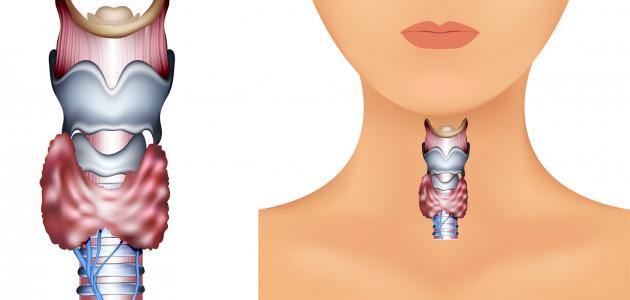Contents
Nasal congestion
Nasal congestion or nasal obstruction is not considered an independent disease, but rather one of the symptoms that accompany a number of different diseases such as colds and sinusitis , and nasal congestion is accompanied by pain in the sinuses, mucus accumulation, and runny nose in some cases And swelling of the tissues and blood vessels surrounding the nose as a result of the accumulation of fluids, and although nasal congestion is annoying, but it often does not pose a threat to the health of the person with it, but it may pose a danger if it affects the normal sleep of the child , or the ability of the infant to breastfeed Naturally, and most cases of nasal congestion can be treated at home with some home remedies, but in the event of nasal congestion for a long time, it is worth seeing a doctor. [1] [2]
Symptoms of nasal congestion
Nasal congestion may be accompanied by a number of other symptoms, such as a runny nose , sneezing, and headache , and the time required to recover from nasal congestion depends on the main cause that led to it, and if the nasal congestion associated with a cold persists for more than ten days, then it is worth seeing a doctor. Nasal congestion may be accompanied by some health complications that depend on the main cause of nasal congestion, for example if the congestion is caused by a viral infection , it may be accompanied by complications such as bronchitis and sinusitis , And infection in the ear, and it is worth consulting a doctor if the congestion is accompanied by one of the following symptoms: [3]
- Infection with fever .
- Feeling of pain in the face.
- Green mucus coming out.
- Feeling pain in the ear.
- Headache.
- Feeling of tightness in the chest.
- Infection cough .
Causes of nasal congestion
There are many different reasons that may lead to nasal congestion, including the following: [3] [4]
- Nasal allergy: and it is one of the very common health problems, and it occurs as a result of the body's immune response in an abnormal way to substances that do not cause this reaction, and examples of these materials are dust, pet dander, pollen or pollen. The main cause of this type of allergy is determined , but there are a group of risk factors that increase the likelihood of developing it, for example the presence of a family history of allergic rhinitis, and nasal congestion in this case may be accompanied by a number of other symptoms, such as itchy eyes and a runny nose , And sneezing.
- Viral infection: The infection of a cold caused by a viral infection is one of the most common causes that lead to nasal congestion, and nasal congestion in this case may be accompanied by a number of other symptoms, such as coughing and sore throat , and one of the most common types of viruses that lead to a cold is the rhinovirus Rhinovirus is another type of viral infection that may lead to nasal congestion, influenza infection, and sinusitis.
- Rhinitis professional: This is similar to the case of allergic rhinitis, but as a result of exposure occur certain substance in the work, leading to the occurrence of allergic reaction resulting in a sore nose injury, are the most common situation in work areas where there are grains, Sawdust, and chemicals.
- Atrophic rhinitis: This condition occurs as a result of thinning and hardening of the membranes of the nose mucous, often as a result of a person is exposed to many spoke surgeries in the nose, and lead this case to the ease of reproduction and growth of bacteria and infection.
- Rhinitis associated with pregnancy: An increase in the proportion of hormones during pregnancy, such as estrogen and progesterone, in addition to increased blood flow leads to swelling of the mucous membranes inside the nose, which may lead To the incidence of nasal congestion and sneezing, and it may occur at any stage of the stage of pregnancy, and the symptoms often disappear within a short period after birth.
- Other causes: There are many other reasons that may lead to nasal congestion, including the following:
- Vasomotor rhinitis, or nonallergic rhinitis.
- The emergence of benign tumors in the nose, or the appearance of nasal polyps.
- Churg-Strauss syndrome.
- Long-term use of decongestants.
- A deviated septum, or a deviated septum
- Exposure to dry air.
- Hormonal changes.
- Foreign body entering the nose.
- Wegenerated granulomatosis .
- Taking some types of medications, such as those used to treat high blood pressure .
- Infection with the human respiratory syncytial virus.
- Smoking .
- Having a problem with the thyroid gland.
Treating nasal congestion
There are many methods of treatment that can be followed to get rid of nasal congestion, for example home remedies, such as the use of a saline spray and drug treatments, where a number of different drugs can be used that help get rid of congestion after identifying the cause that led to its occurrence, and among these drugs Comes: [1]
- Nasal steroids, such as mometasone and fluticasone .
- Decongestants.
- Antibiotics .
- Antihistamine antihistamines, and it comes in the form of oral pills such as Loratadine, Cetirizine, and in the form of nasal sprays such as Azelastine.
References
- ^ A b Kristeen Moore, "What ' Causes Stuffy Nose?" , Www.healthline.com , Retrieved 9-7-2018. Edited.
- ↑ "Nasal congestion" , www.mayoclinic.org , 11-1-2018, Retrieved 9-7-2018. Edited.
- ^ A b MaryAnn De Pietro (1-3-2017), "How To To the get rid 's of a Stuffy Of the nose: Ten Possible Treatments" , www.medicalnewstoday.com The , Retrieved 9-7-2018. Edited.
- ↑ "Nasal congestion" , www.mayoclinic.or , 11-1-2018, Retrieved 9-7-2018. Edited.









